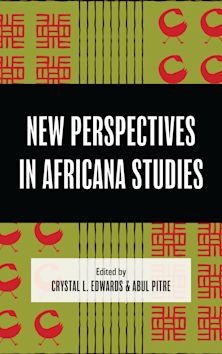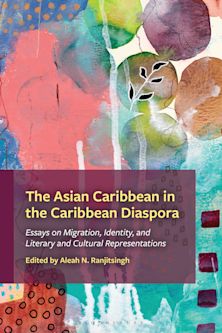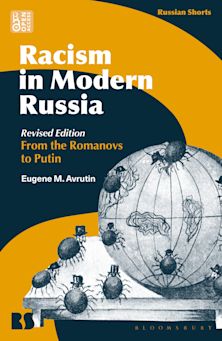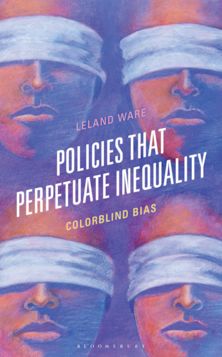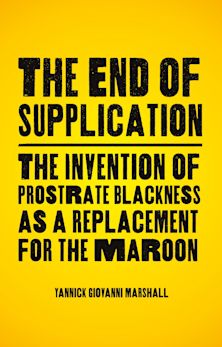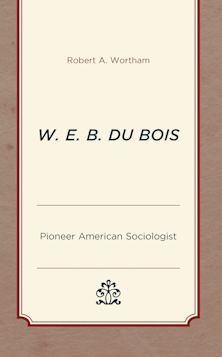- Home
- ACADEMIC
- Politics & International Relations
- Race and Ethnicity
- Black Folklorists in Pursuit of Equality
Black Folklorists in Pursuit of Equality
African American Identity and Cultural Politics, 1893–1943
Black Folklorists in Pursuit of Equality
African American Identity and Cultural Politics, 1893–1943
This product is usually dispatched within 1 week
- Delivery and returns info
-
Free US delivery on orders $35 or over
You must sign in to add this item to your wishlist. Please sign in or create an account
Description
After the Civil War, Emancipation purportedly brought physical freedom to African Americans. As the nineteenth century drew to a close, blacks continued to experience inequality in all phases of American life—social, cultural, political, and economic. In pursuit of equality, African American movements interpreted folklore to reveal in their rhetoric the soul of a race and a path toward civilization. This book provides a comprehensive chronicle of these competing initiatives and their reception starting with the folklore society organized by Hampton Institute in 1893 and continuing through the early 1940s with the American Negro Academy, Fisk University graduates, William Hannibal Thomas, the National Association for the Advancement of Colored People, the Urban League, the Friends of Negro Freedom, the Universal Negro Improvement Association, and blacks associated with the Communist Party USA. Disavowing a culture of fear, money, guns, and death, black folklorists in these movements exposed a racial inner life ranging from loving, loyal, and happy to imitative, tragic, spiritual, emotional, and creative. Each characterization of the race justified a distinct path and possible contributions to civilization. If unable to know their past, members of the movements and other folklorists were fearful that African Americans would be an anomaly among humanity.
Table of Contents
Chapter 1: Folklore in Pursuit of Identity and Survival
Chapter 2: Folklore in Pursuit of Economic Equality
Chapter 3: Folklore in Pursuit of a Cultural Education
Chapter 4: Folklore in Pursuit of Political Equality
Chapter 5: Folklore in Pursuit of Loyalty
Chapter 6: Folklore in Pursuit of Nation-Building
Chapter 7: Folklore in Pursuit of Social Equality
Chapter 8: Folklore in Pursuit of Full Equality and Self-Determination
Conclusion: Happy Days and Sorrow Songs
Bibliography
Index
About the Author
Product details
| Published | Jun 16 2023 |
|---|---|
| Format | Hardback |
| Edition | 1st |
| Extent | 400 |
| ISBN | 9781498586139 |
| Imprint | Lexington Books |
| Dimensions | 9 x 6 inches |
| Series | Studies in Folklore and Ethnology: Traditions, Practices, and Identities |
| Publisher | Bloomsbury Publishing |
About the contributors
Reviews
-
Sharps’s 50-year history is rooted in extensive research in archives and the literature. It [addresses] in great detail the personal, social, political, and literary contexts in which a smattering of African American folklore is expressed. These include detailed descriptions of the Hampton Institute, Tuskegee University, Fisk University, the American Negro Academy, the Friends of Negro Freedom, the NAACP, the Universal Negro Improvement Association, the Urban League, and figures such as W. E. B Dubois, Marcus Garvey, Robert Moton, Carter Woodson, Charles S. Johnson, Alain Locke, and, especially, Booker T. Washington. Sharps reviews Black scholars' and writers’ relationships to communism and how it influenced perceptions of folklore. Folklore themes and subjects often referenced include the egregious misappropriation of folklore to fabricate a happy plantation and enslavement narrative, slave oral histories, “sorrow songs” and work songs, and the figure of John Henry. Sharps contrasts lower-class jazz, blues, and ragtime with the elites’ reconceived and supposedly improved folk songs, referring to the banjo and fiddle as “rude instruments.” The book primarily focuses on using folklore to help prepare Black people for full and equal participation in American society and includes much information not previously available. Bibliographic documentation is thorough. Recommended. Advanced undergraduates through faculty.
Choice Reviews
-
Academics in varied disciplines, especially historians, will find intellectual value and topics of great interest in this book. The folklorist lens of history is quite useful and adds a fascinating interdisciplinary approach to the humanities that could help any future cultural study of African American history or southern history. This book is worthy of consideration by historians and would be most helpful to those looking to include different theoretical frameworks in their future works.
Journal of Southern History
-
Grounded in exhaustive archival research and informed by a sound interpretive framework, Black Folklorists in Pursuit of Equality: African American Identity and Cultural Politics, 1893–1943 tells the comprehensive story of the motivations and means through which Hampton Institute folklorists and their contemporaries at peer institutions tackled and depicted nineteenth century African American folklore. Sharps does a masterful job of delineating the sometimes complementary but often competing aspirations held by scholars who saw value in the preservation of slave lore. This book is not just about African American folklore history, it offers original and important contributions to our understanding of the development of African American intellectual thought.
Patricia A. Turner, author of Trash Talk: Anti-Obama Lore and Race in the 21st Century
-
Meticulously researched and exhaustive in its reach, Black Folklorists in Pursuit of Equality is a comprehensive account of the cultural impact of the Hampton Folklore Society over a period of fifty years. Ostensibly a study of the ways that Hampton scholars’ understanding and interpretation of African American folklore both influenced and was influenced by their own conceptualizations of racial and cultural ideologies from the 1890s through the 1940s, this book does much more; it elucidates the engaging and fascinating story of the much contested and ever-shifting understanding of African American character and identity in the U.S. from emancipation through the first half of the twentieth century through the prism of folklore.
David Todd Lawrence, co-author of When They Blew the Levee: Race, Politics, and Community in Pinhook, Missouri
-
This book is an invaluable contribution to the history of American folkloristics, as the 1890s’ work and role of an HBCU, its publication arm, and its folklore society have often gone unacknowledged.
Marilyn M. White, president-elect, American Folklore Society

ONLINE RESOURCES
Bloomsbury Collections
This book is available on Bloomsbury Collections where your library has access.













